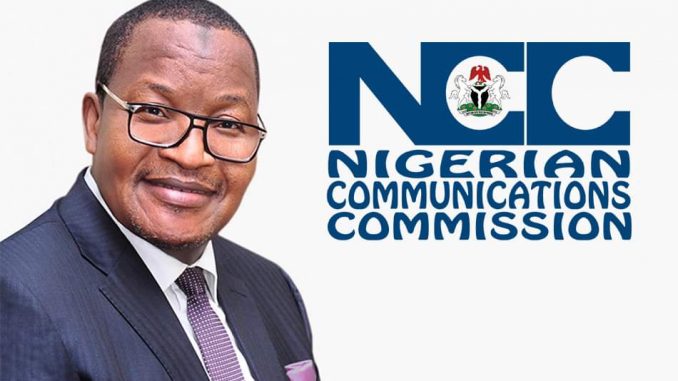The Nigerian Communications Commission (NCC) met with telecoms firms and other relevant stakeholders recently to discuss the issue of irregular data depletion being faced by data users in the country as part of events to mark the 2023 International Consumer Rights Day.
The discussion of data depletion, which has emerged as one of telecom users’ most prevalent grievances following their recent move to 4G/LTE technology, was a crucial part of the event, according to Umar Garba Danbatta, Vice Executive Chairman and Chief Executive Officer of the NCC.
Danbatta emphasised the importance of finding a solution, particularly as the country moves towards 5G technology alongside the rest of the world.
The EVC spoke during the 91st Telecom Consumer Parliament (TCP), with the theme “Data Depletion: Debates on Different Views,” organised by the Commission in Abuja. The EVC was represented by Muhammed Babajika, NCC Director, Licensing and Authorization.
“In keeping with our responsibility to safeguard, educate, and inform telecom customers, this event is one of our high-level conversation forums held twice a year to exchange opinions on crucial topics affecting the country’s telecom service users,” he stated.
Read also: NCC insists on approved short codes implementation for (MNOs)
Consumers are continually alerting the Commission of their experiences through our numerous complaint channels. “Consumers have been experiencing data depletion, either as a result of data usage or consumption.
“The COVID-19 pandemic’s onset served as the impetus for the global explosion of new technologies, which created a wide range of services, dynamic business models, and new prospects and markets on a global scale.
Given the reported increase in the usage of computers, cellphones, smartwatches, and other technology-dependent products that have provided customers access to multi-functional comfort and utility, the Nigerian telecom business was not left out.
Many people now interact more easily thanks to technology thanks to social media and instant messaging programmes.
There is no doubt that the internet, which facilitates connectivity, provides the foundation technology enabling these services.
Consumers are experiencing what they describe as an abnormal depletion of their data when they subscribe to and use the internet, which is why we are in this situation right now.
In light of Nigeria’s march towards 5G technology and the issuance of 3.5GHz spectrum licences to MTN Nigeria Communications Limited, MAFAB Communications Limited, and Airtel Networks Limited, this discussion could not have occurred at a more favourable time.
It is important to note that 5G technology offers the advantages of ultra-high-speed data, low latency, and higher bandwidth above 4G technology, whereas 4G delivers better download speeds, more bandwidth, and better voice quality than 3G technology.
So, before we fully implement 5G technology, it is crucial that we thoroughly appreciate and comprehend the challenges surrounding data depletion, its utilisation, and consumption in the era of 4G technology.
“The interests of the telecom consumer are of utmost concern to us, and as the telecom regulator, it is our duty to make sure that their voice is heard and that their complaints are addressed by the appropriate authorities.
In light of this, the Commission today invited the major actors in the sector to a discussion on the subject in order to better understand the many viewpoints on this pressing problem, identify potential reasons, and come up with ideas for moving forward.
NCC advocates use of renewable energy on World Consumer Rights Day
In this session, we’ll hear from regulators, industry, and consumer advocacy group officials as they discuss the problem of data depletion from their various points of view.
The Commission has a duty to the industry in addition to its duty to the telecom customer; these two obligations are intertwined and dependent on one another for survival.
The operators’ businesses are built around the consumers; if their interests weren’t taken into consideration, the operators’ investments would tank, and there wouldn’t be any industry for the Commission to supervise.
Thus, it is important that we take advantage of the opportunity provided by the Commission’s high-level outreach events, like this Parliament, to really exchange ideas on how to minimise the obstacles to successful service supply.




